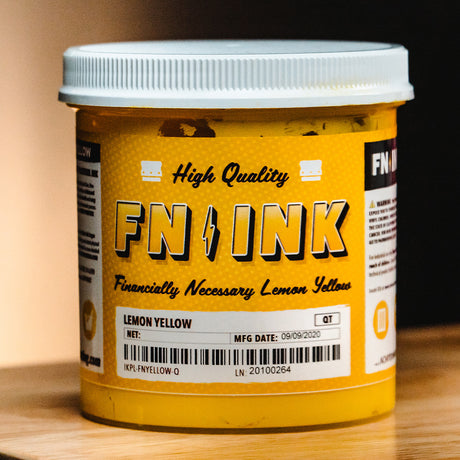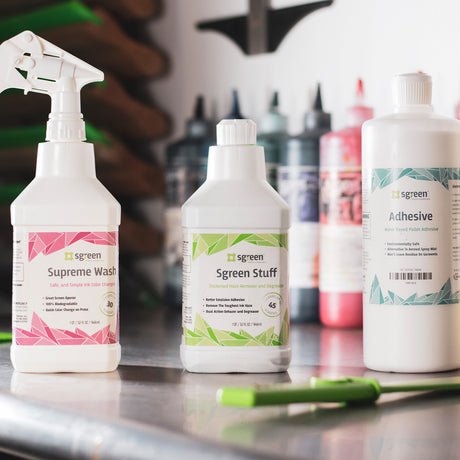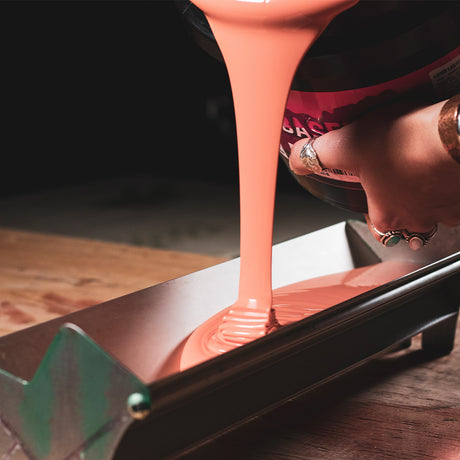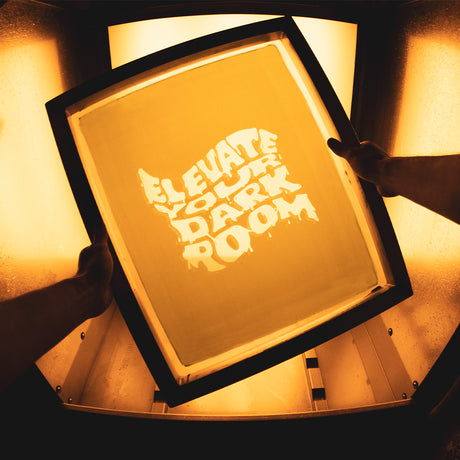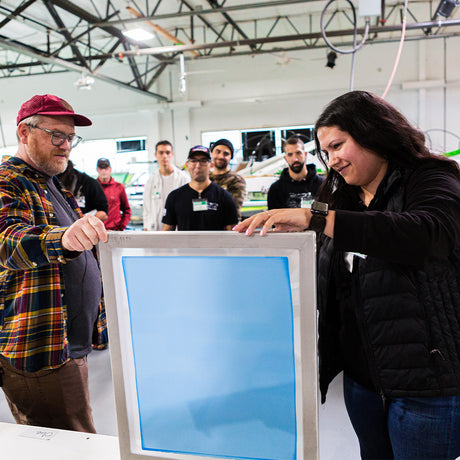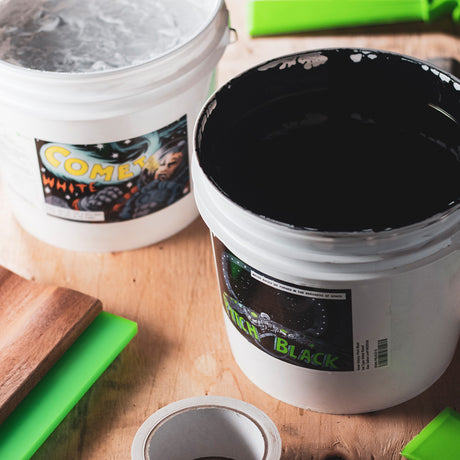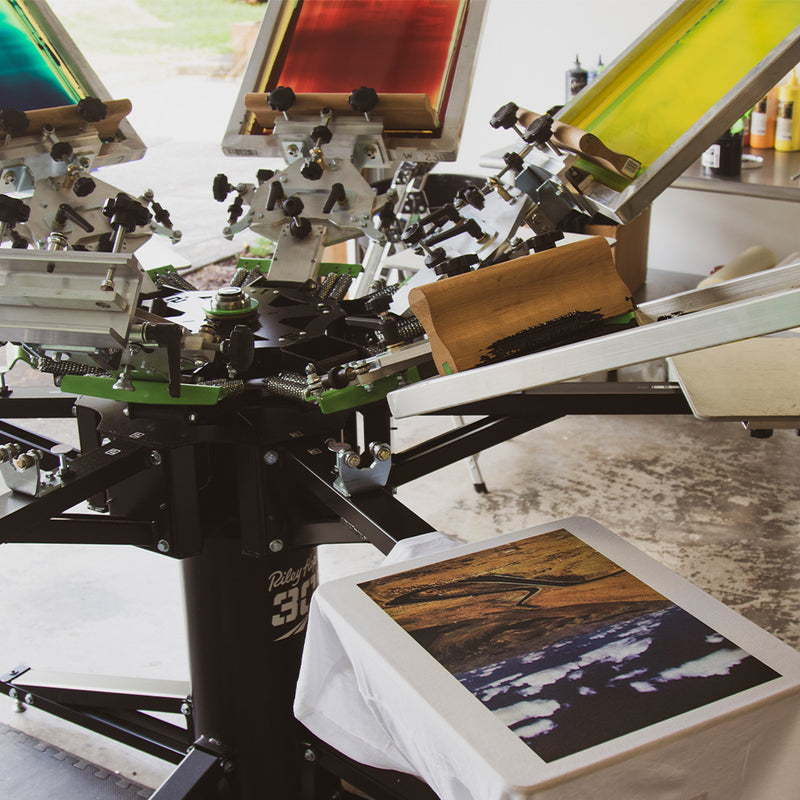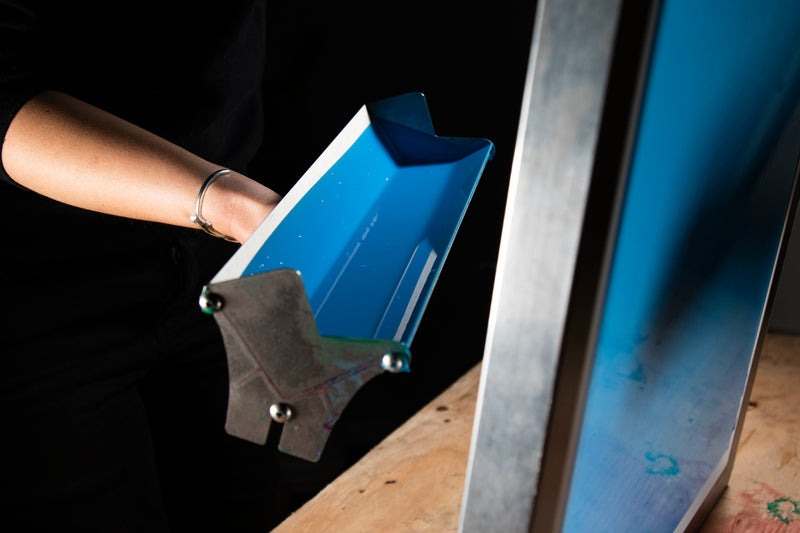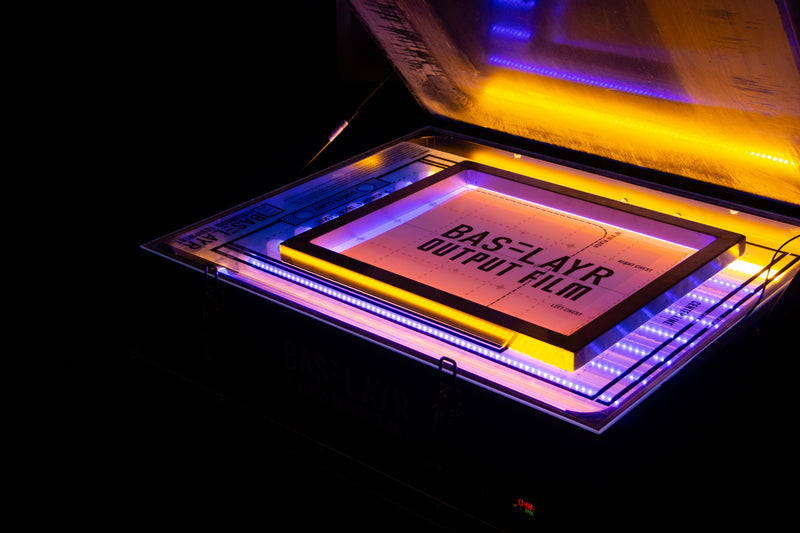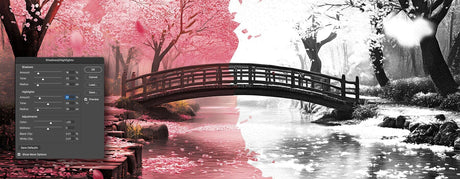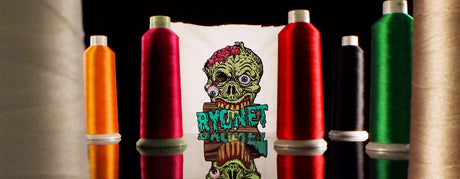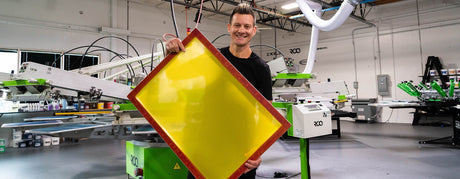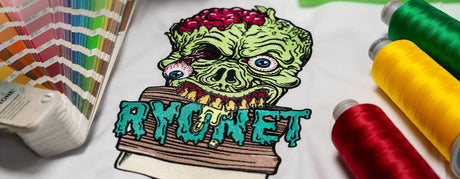Adjust flash cure temperature and dwell time so the ink is just dry to the touch. Depending on the flash unit, a 2–3 second flash is adequate. Quick White should be flashed at 220°F (105°C)and fully cured at 300°F (149°C).
Curing is a time and temperature process; a lower dryer temperature setting with a slower belt speed while maintaining recommended ink cure temperature is always best to protect fabric, control dye migration, and reduce energy consumption.
*Cure is attained when the ENTIRE ink layer reaches 300°F, meaning that the ink is 300°F from the top to the bottom of the ink layer. If you are using a laser gun to read the surface temp, this will be misleading. Laser temp guns give you a reflective reading. When tested side-by-side with a donut probe, you will see temperature differences as great as 120°F–150°F early in the cure cycle (the donut probe accurately measures the contact temperature where the crosshairs reside). As you reach the end of the dryer, those temperatures will get closer together. As a direct result – you will need to read a surface temp as little as 60°F above what the stated cure temp is and as much as 100°F depending on how short the conveyor dryer tunnel is and how hot the settings are. This is due to a few variables.
VARIABLES THAT AFFECT CURE TIMES
The rate at that plastisol ink absorbs heat. Some colors, like black ink, will heat up faster than others as they absorb infrared heat waves more readily.
How hot the ink is when entering the tunnel of the conveyor dryer. Cooler inks will take longer to heat up, thus taking longer to reach full cure.
The thickness of the ink deposit. Thicker ink deposits take longer to cure than thinner ink deposits. A longer dwell time is needed to reach a full cure through the whole ink layer. Heat/IR waves take time to penetrate and heat up the ink.
The length of the tunnel of the conveyor. Curing ink is about temperature and time. It takes time for the entire ink layer to heat up and reach cure temp. Run a conveyor at a slower pace and lower temperature to ensure the heat penetrates the bottom of the ink layer.
Cotton garments take longer to heat up than polyblends or 100% polyester. Cotton naturally soaks up and holds onto water. When putting the shirt through the dryer, the dryer will release the water in the cotton fibers, slowing down how fast ink heats up.
The quality of the infrared panels. IR Panels are not created equal. Some panels are more efficient in creating heat within the ink layer than others. When changing the dryer to low cure temperatures, follow the recommendations and parameters laid out above and do wash testing to ensure the new dryer settings are reaching a full cure.









